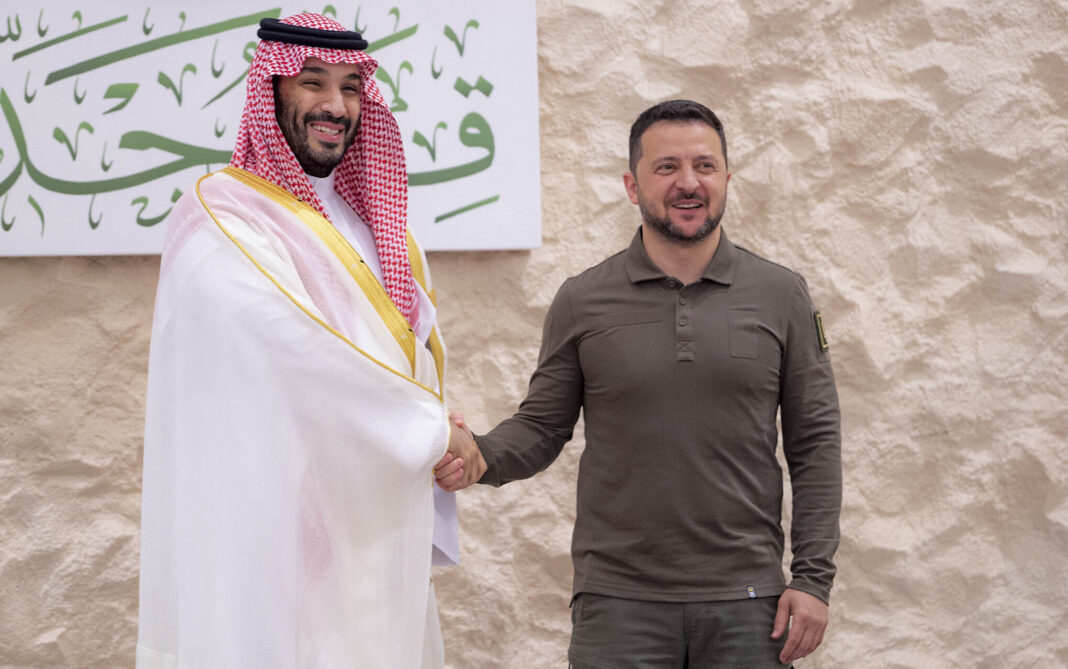Jeddah, Saudi Arabia, August 07: A two-day ‘Ukraine Peace Talks’ held in Jeddah, Saudi Arabia on August 05 and 06 aimed to establish crucial principles for resolving the conflict in Ukraine, marking the second such forum after a similar event in Copenhagen earlier this summer.
The meeting, organized to discuss President Zelensky’s peace plan, drew participation from about 40 countries, including the US, India, the EU, and China.
Notably, Russia was excluded from these talks, raising questions about the feasibility of achieving peace without its involvement.
Ukraine’s diplomatic push to engage a wider array of nations, particularly those in the Global South, underscored the significance of this meeting.
Despite the absence of a joint statement following the meeting, Zelensky expressed hope that the initiative would culminate in a world leaders’ “peace summit” during the upcoming autumn season.
Zelensky’s 10-point peace formula emphasizes respecting Ukraine’s sovereignty, adhering to international law, and restoring UN principles.
This diplomatic endeavor offers Ukraine the opportunity to engage neutral nations like India and Brazil, signaling their desire for an end to the conflict, which negatively impacts the Global South.
However, the absence of Russia from these talks has raised doubts about the efficacy of any resulting peace plan at this juncture.
Moscow’s annexation of Ukrainian territories and its insistence on accounting for the “new realities” complicate any prospects for negotiations. Russian President Putin’s reluctance to discuss a plan that doesn’t acknowledge his gains in the conflict further dampens hopes for a resolution.
Despite the presence of countries like China and India, which are strategic partners of Russia, as potential representatives of Russia in these peace talks, it remains unwise to assume their impact.
The Russian response to the past efforts by China toward peace mediation has highlighted Russia’s limited enthusiasm for such initiatives. India, while expressing interest in mediation, remains cautious due to Putin’s preference for negotiations after achieving significant victory on the battleground.
President Putin’s lack of readiness for peace discussions becomes evident as he intensifies his offensive in Ukraine and hints at escalation in NATO-member Poland.
President Zelensky’s own approach has also been questionable, with his focus seemingly more on garnering the maximum possible support for his war efforts support than genuine peace talks.
Recently, the diplomatic efforts by the African peace delegation visited Kyiv and Moscow to suggest a ‘Peace Plan’ consisting of “confidence-building measures” were met with disappointment as both Zelensky and Putin showed no inclination towards engaging in peace talks.
At last, the question remains: Can attempts at peace in Ukraine succeed without the involvement of both the warring parties, Russia and Ukraine?
The absence of Russia’s participation at “Ukraine Peace Talks” in Saudi Arabia casts doubt on the feasibility of any peace plan, given the complex geopolitical dynamics and the contradicting objectives of the involved parties.






